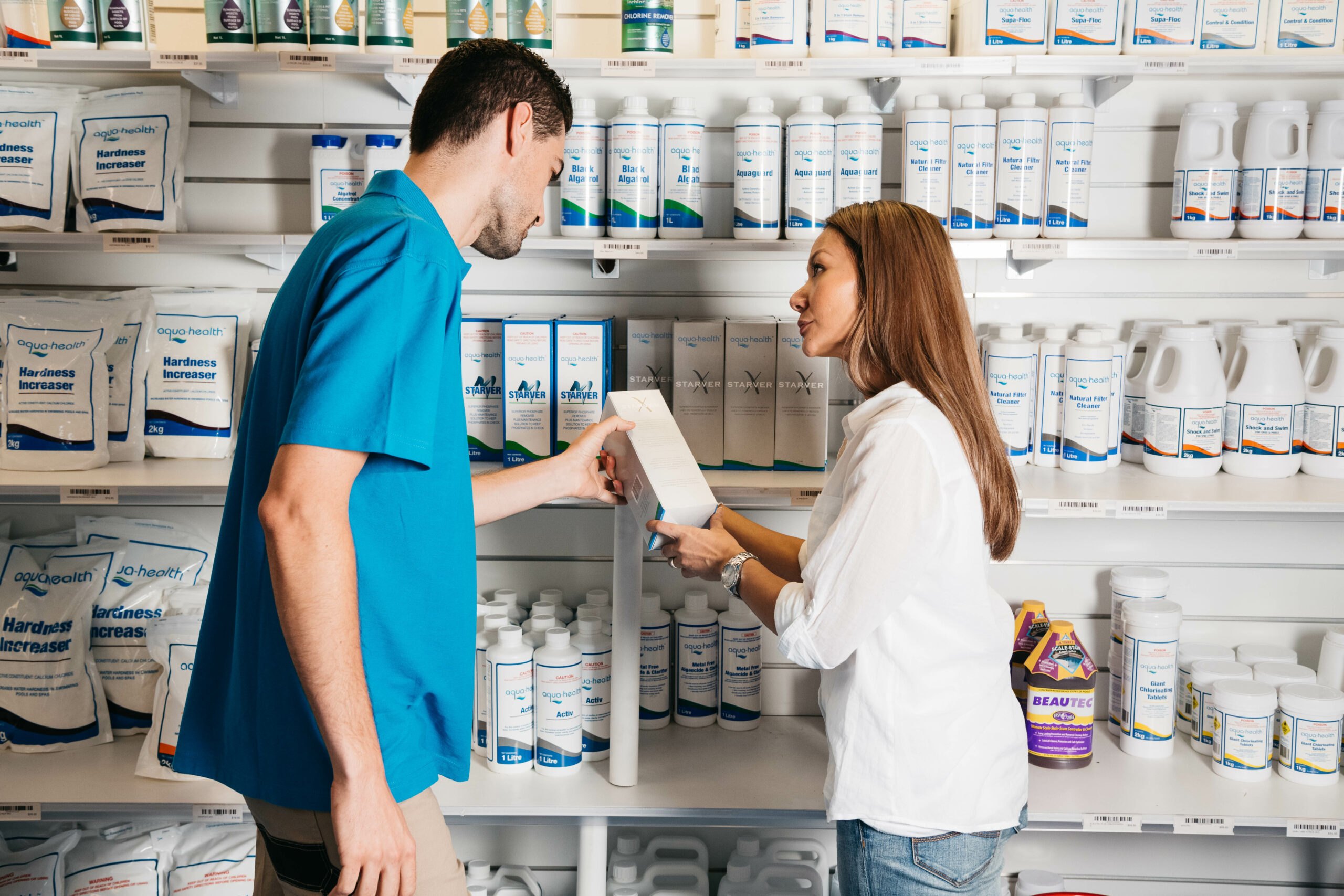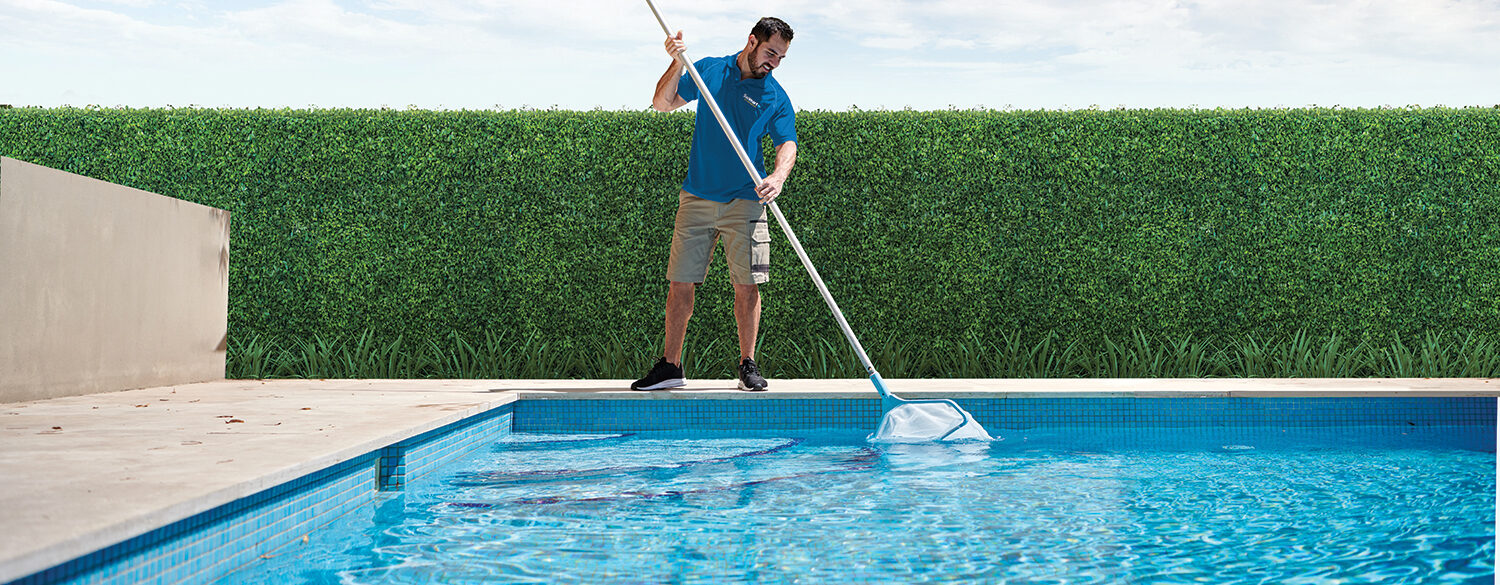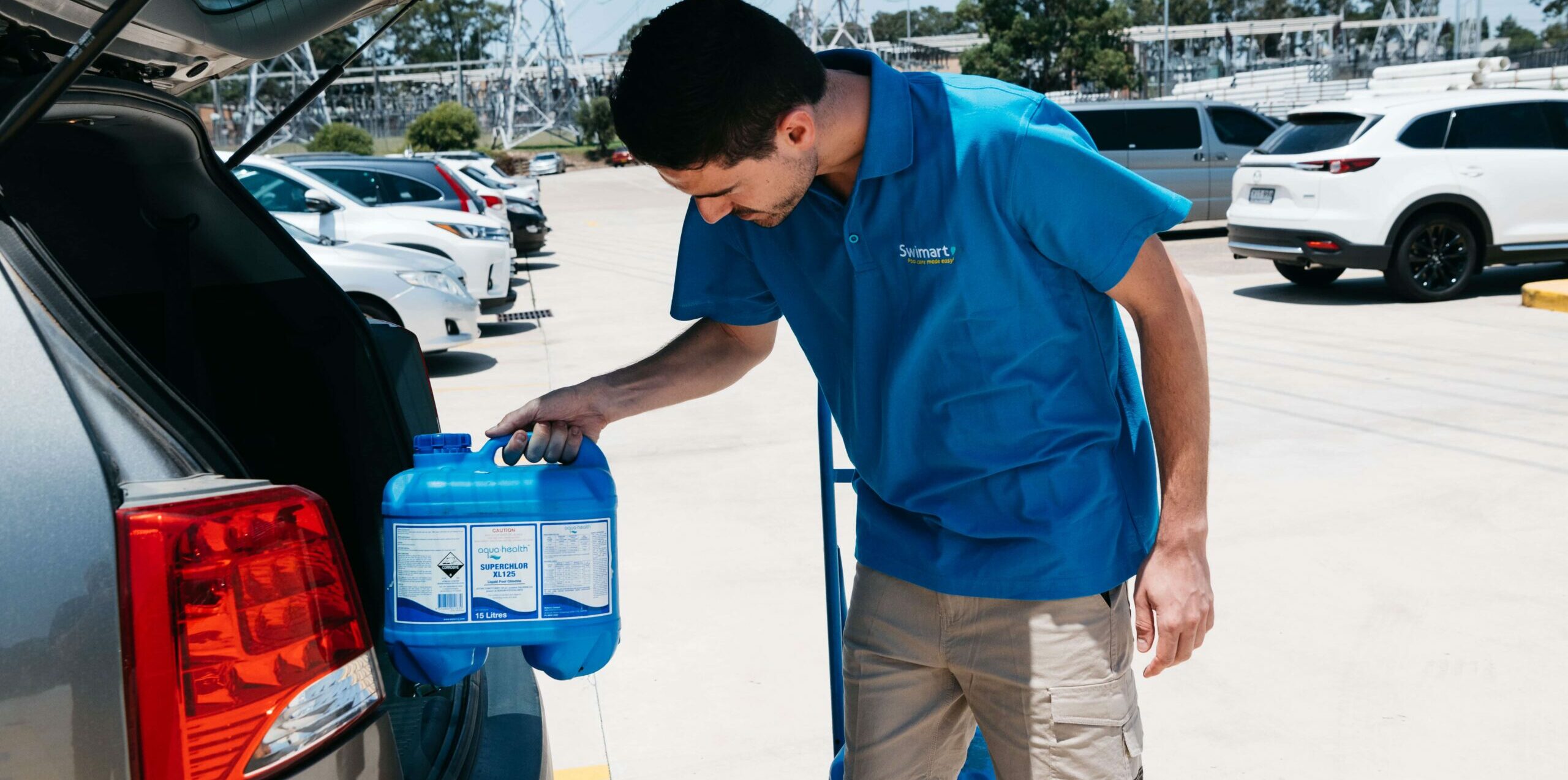Blog
HOW TO “SHOCK” YOUR POOL AND WHEN TO DO IT
10 May 2022
Superchlorination is a big part of keeping pool water clear, clean and safe for use. Sometimes chlorine needs a boost to continue performing effectively, particularly when it comes to removing ammonia from pool water.
Ammonia typically enters the pool as swimmer waste, such as sunscreen, sweat, saliva, etc. It combines with the chlorine to form chloramines, reducing chlorine’s capacity to do what it does best. Testing might show pool water to have the right amount of chlorine, but it may not actually be working as effectively as it should be. Giving your pool a heavy dose of chlorine is an effective way to take care of this problem.
Superchlorination, also known as shocking or chlorine shocking, is the process of adding several times more chlorine to the pool than is normally needed so that it can ‘burn’ through chemicals, oils and strong types of algae.
Weekly maintenance
Superchlorination at regular intervals is a big part of keeping your water clear, clean and safe for use. This should be a weekly part of your pool maintenance program, especially during the peak swimming season. Frequent pool use allows more swimmer waste into the water – especially if your pets like having a paddle when it’s hot! – requiring more frequent maintenance.
How to shock
There are two reasons why you need to shock your pool with the filter pump turned on. First, the filter needs to be working in order to catch any dead bacteria or algae that superchlorination has killed. With the filter system off, these particles would just float to the surface or even stay where they are. Second, the filtration system needs to be working to spread the chlorine evenly throughout the pool or it will not have the same effect.
Superchlorination generally requires three to four times the regular dose of chlorine, although milder methods are available that only raise the chlorine to three parts per million (ppm). Either way, know the normal amount of chlorine your pool is expected to have, and have enough chlorine to shock the system above that mark.
Switch your chlorinator to the right setting
If applicable, switch your chlorinator to the superchlorination mode as this will automatically increase the chlorine level to shock levels and then decrease it as needed. Superchlorination will only last about a day after adding the chemicals. To be sure, you should always test the pool afterwards. Safe chlorine levels are around 1-2ppm.
Swimart stocks a number of Aqua~Health formulas, including:
Take a water sample into your local Swimart store so we can help bring it back into balance or call 1300 190 400 and we'll find a mobile technician for you.
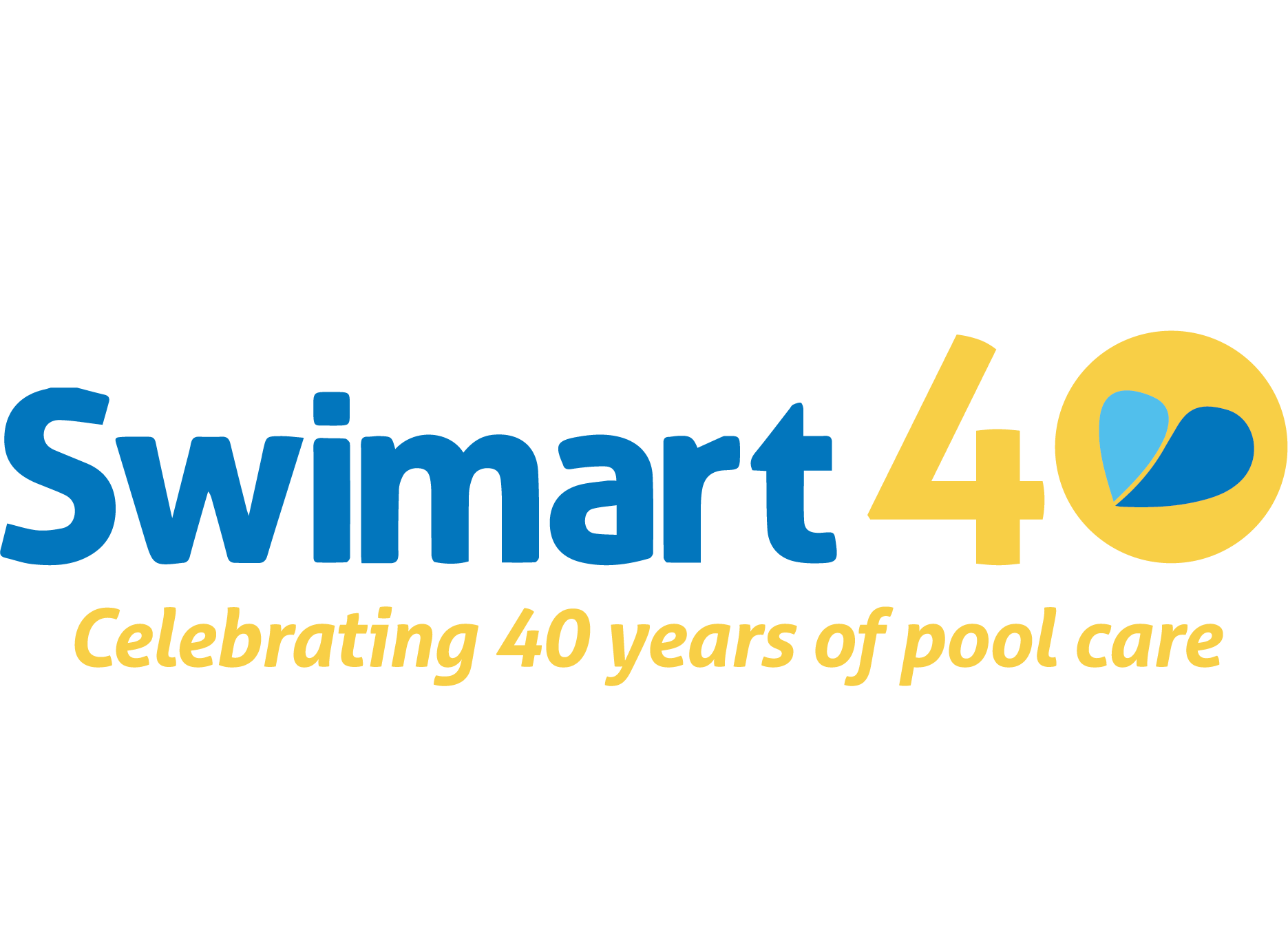
 AUS
AUS NZ
NZ 